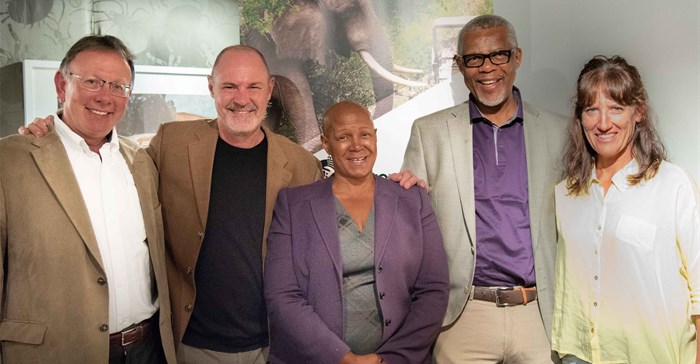
Top stories






More news

















Logistics & Transport
Uganda plans new rail link to Tanzania for mineral export boost









The conservation of South Africa's biodiversity is a critical component in securing the future of tourism, an industry many South Africans depend on for their livelihood.
Aiming to create viable local enterprises, training and employment opportunities for poor households and entrepreneurs living adjacent to protected conservation areas, the TCF and its investments will directly facilitate, finance and enable the establishment of more inclusive local economies around the country’s parks and protected areas in which the opportunities and benefits that derive from them are more widely shared.
This is a pre-condition for the sustainability of these parks and for combatting wildlife crime effectively. Communities bordering protected conservation areas will, through TCF initiatives, have greater access to the commercial opportunities that derive from these areas - from which they have been historically excluded. This is intended to enhance the identity and ownership that these communities have of the country’s wildlife assets, and will, in turn, help safeguard them from the ravages of wildlife crime.

Peace Parks Foundation chief operations officer, Brad Poole said: "The importance of the establishment of the TCF for wildlife conservation cannot be overstated. Current sources of funding are not enough to deliver significant benefits to communities living adjacent to conservation areas, so the ultimate goal of the fund is to generate a sustainable stream of funding through which to actively implement projects that will minimise competition and conflict in the use of natural resources. It will, subsequently, nurture and protect the cultural, natural and wildlife assets on which the tourism industry and community livelihoods depend."
The fund’s mission is to 'enhance biodiversity and the conservation of South Africa’s conservation areas through effective economic and social development programmes which contribute to sustainable poverty reduction, economic opportunity and broad-based economic growth in communities suffering from or at a high risk of wildlife crime'.
The TCF will be driven by Paul Zille, its CEO, and a board comprising senior representatives of the tourism industry and the conservation sector. It aims to raise its revenues through voluntary donations from businesses, donors and foundations operating in the tourism industry and the conservation sector.
"The TCF is a public-private partnership and operates as both a funder and a development facilitator. It works with existing commercial players who have the experience, networks and commitment to create, replicate and scale commercial partnerships of all kinds with historically disadvantaged communities close to the wildlife-tourism value chain. It will achieve its development goals by leveraging the market links, resources and expertise of established commercial players to create new enterprise, training and employment opportunities in historically excluded communities. The fund is opportunity-driven. It will respond pro-actively to good ideas and fresh thinking which contribute to the development and expansion of a more inclusive wildlife-tourism economy," says Zille.
Contributors will receive Section 18A tax deductions on their donations, as well as BEE Scorecard points in relation to the socio-economic development (SED) and enterprise development (ED) categories of the BEE codes.
In 2018, the TCF aims to launch three distinct but related programmes. The first is an Inclusive business linkage fund to establish and scale commercial linkages between high-value formal enterprises operating across the local wildlife-tourism value chain, and new and emerging businesses operating in adjacent communities. The tourism conservation fund marks its establishment with the launch of this facility.
A youth training for employment facility, to be launched later this year, will provide unemployed youth with work-readiness and vocational training appropriate to the job opportunities that exist within the local wildlife-tourism economy. It will work simultaneously with employers to create structured internships for youth who graduate from such training, many of whom will hopefully realise long-term formal employment in the sector. Emphasising the importance of this facility, director-general Nosipho Ngcaba said: "In South Africa, we have a great number of unemployed youth and this programme should be a springboard to enable young souls to be directed to doing something of value to the country, which will be beneficial to them."
A finance and business support fund will then be created to provide patient capital to high potential and fast-growing small businesses with the potential to capitalise on and leverage local commercial opportunities for growth.
Minister of Tourism, Derek Hanekom has indicated that he strongly supports this initiative: "South Africa's wildlife resources are not only important for biodiversity but remain at the heart of our tourism offer. Any threat to our wildlife represents a threat to our tourism industry as a whole and to local livelihoods and jobs. Effective and sustainable wildlife management relies on community buy-in, which is achieved by initiatives that allow communities to experience tangible benefits flowing from the protection of this resource."